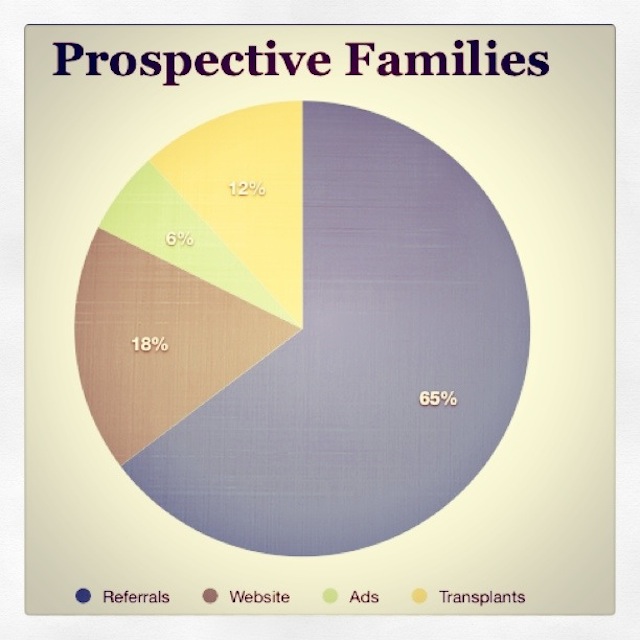Administrative Lessons
Thoughts & Reflections
Over the past few years, we’ve gained many insights into Montessori, both in and outside of the classroom. Of course, we hope there are many more moments of clarion to be gleaned in the future, but we thought we would take this opportunity to share some of the administrative lessons that we’ve learned thus far. Hopefully our comments will help new Montessori schools just starting out, and older, more established Montessori schools, think about the ways in which we operate our schools, both from an administration point of view, and from a storyline perspective.

Administration:

First, let’s turn to administration. At the risk of servicing any cliches, we have a little egg metaphor that we like to use to describe the function of a Montessori school.
While the teachers and the environment are the albumen, feeding the knowledge and supporting the development of the yolk, the children are the yolk, embraced and loved and nourished. Lastly, administrators are the hard exterior, the shell, protecting and nurturing that egg, fostering its growth until it’s ready to emerge, on its own, out into the world.
When the shell is ready to be cracked, from the inside, that’s when the school has accomplished its goal and when administrators are no longer needed, for the children can speak on their own. In the meantime, we’re here to facilitate that process.
Here are a few key points that we see as vital to the work of an administrator:
1. Keep It Simple: In most cases, whether it is on the telephone, or the internet, administrators are the first line of communication. Keep in mind, a prospective families initial encounter with the school is typically through some form of an administrative role: whether that be creating content for the website, walking a prospective family through the school, or answering questions on email or the telephone. It helps to keep things simple.
2. Keep it Meaningful: Montessori is more than just a philosophy or method or approach to early childhood education. It is a collaborative effort between teachers and staff and children and their families. Less we forget, the fulcrum of any school always rests with the children, and their families, who are the catalysts behind our schools. They are the driving force of our motivation and respect. Administrators must always remember the meaning behind their positions.
3. Keep it Organized: No matter how organized administrators are with tasks, they can always be more organized. Whether it’s with staff meetings, new blog posts, or parent education workshops, organization is crucial to the success and operation of a school. Having a system in place, developing procedures for circumstances, makes everything run more smoothly and efficient. Organization should not be underestimated, as it leads to greater productivity.
4. Keep it Explanatory: In our opinion, there are three main obstacles, or misconceptions of Montessori, that must be overcome; first, that Montessori is a religious form of education; second, that Montessori is only for children with learning disadvantages; third, that Montessori is only for the elite. As administrators, we must continue to educate and explain Montessori, in clear and informative ways.
5. Keep it Passionate: Of course, nothing is more personal than how administrators feel about their schools, and about Montessori. As Montessorians, however, we need to learn how to convey this passion, while, at the same time, remaining open and communicable with parents and the community. Many Montessorians have strong positions on certain issues, but we need to continue to find ways to share these ideas and concerns, avoiding judgements and imperatives.
As administrators, we must advocate and educate, perhaps in equal measure.
Storyline:

Now, the fun part. Let’s address marketing, or what we prefer to refer to as, following Hugh Weber, the “storyline” perspective.
As many of you know, the rules of the game, well, they’re completing changing. Traditional approaches to marketing simply don’t work, and with good reason: they often fail to successfully tell a story.
Before we run through some story tips and reminders, we thought it would be helpful to share some statistics that we’ve recorded at Baan Dek over the past few years.
While each community is entirely different, there are clear similarities in approach. Keep in mind, these are rough approximations, and statistics only tell much. However, we think you’ll be pretty surprised by some of the results.
1. First, you’ll notice in our “Inquiries” infographics, that 90% of prospective families get in touch with us through email, after having visited our website. Surprising to some, they don’t look up our number in the Yellow Pages.
Thus, having a web presence can be absolutely crucial to telling the unique story of your school. Extending that presence, with Twitter and Facebook is supportive, but we really need to concentrate on our principle site.
Even with viewers who are interested in your site, you have a very limited amount of time to try to convey what Montessori is, in an effective, powerful and timely fashion. Take the chance, try to share your story.
2. Second, you’ll see from our “Prospective Families” infographics, that the majority of our new families were actually word of mouth referrals, recommended by current or former members of our school. After all, it‘s truly their stories that matter.
While this may seem obvious, current and former parents and families are our absolute best allies, largely because they have a singular story to share. These stories can range from – wonder at the development of their child’s progress, to an articulation of a certain way Math is taught in Montessori.
One of the curious things about Montessori schools, is that once you’ve come to terms with our concepts and ideas, it’s sometimes hard not to distance ourselves from how things are ordinarily done. We lose the perspective of the propsective parent. We lose the thread of our original story…
How best to continue to enrich the perspective of the prospective families? Education. Exposure. Transparency. Parent workshops are terrific, but we can also try to achieve this same mission through our websites, Twitter, Facebook, or another online platform. Whatever works best to share your story, in a rich, informative, and personal way.
At the end of the day, Montessori isn’t about numbers or statistics. It’s about children and their families. It’s about helping them to find, invent and share their own stories. Hope you have enjoyed these administrative lessons.
Written by:
Baan Dek
